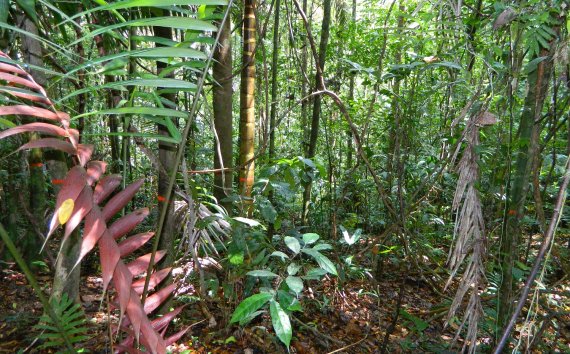This was the first time the forest’s powers of recovery have been monitored in small tracts of tropical forest felled for small-scale agriculture. The researchers used data from 56 locations in 10 different countries in South America. The study shows that the number of species reaches 80 percent of the number before felling within 20 years. But this is a misleading statistic, as only 34 per cent of those species match the original species. It takes many centuries before the forest is restored to its former glory, if ever.
It should be noted, however, that there are big differences between locations. There can be all sorts of reasons for that variation, says Rozendaal. ‘It has to do with the kind of forest: wet forests have far more species than dry forests. But the kind of agriculture and its duration make a difference too.’
The forest is never going to look 100 per cent the same again, but it is important to restore the functions of the forest.
Danaë Rozendaal
That the forest recovers to some extent is good news. ‘But it cuts both ways,’ says Rozendaal. ‘The number of species gets back to normal quickly, but getting back to the old composition goes slowly or doesn’t happen at all. Biodiversity is a matter of both the number of species and the species composition. For that composition, you have to protect old forest.’
It is also questionable whether total restoration should be the aim. Rozendaal: ‘It is not realistic to aim at restoring exactly the same composition. The forest is never going to look 100 per cent the same again. What is important is to restore the functions of the forest. We are doing a study on that now.’

 A secondary tropical forest doesn’t necessarily have fewer species that the original forest, but different ones. Photo: A secondary tropical forest in Costa Rica. Photo: Danaë Rozendaal
A secondary tropical forest doesn’t necessarily have fewer species that the original forest, but different ones. Photo: A secondary tropical forest in Costa Rica. Photo: Danaë Rozendaal